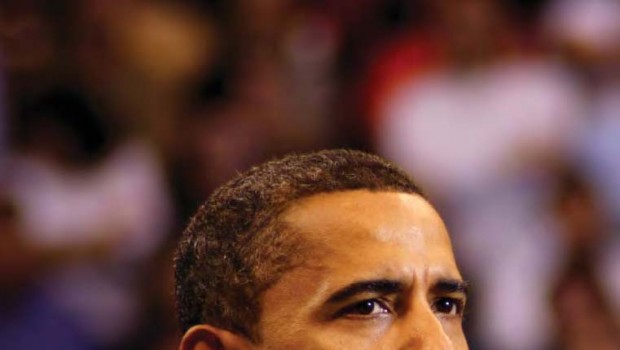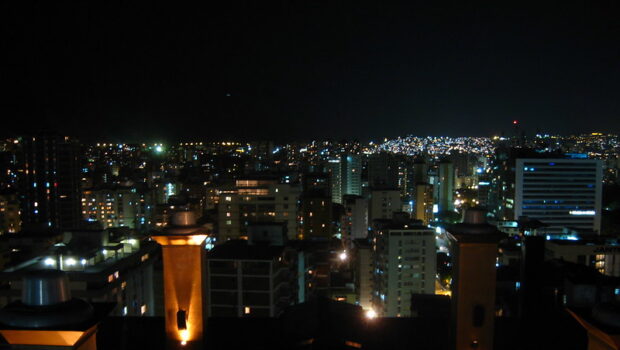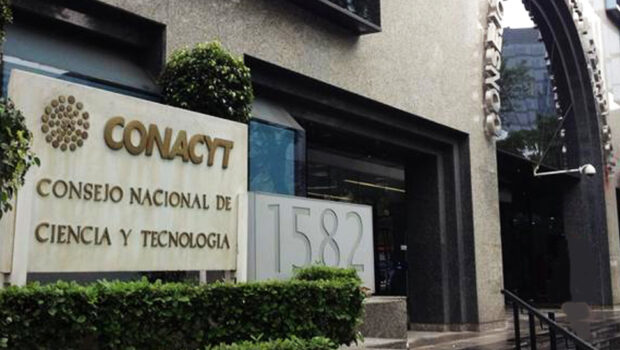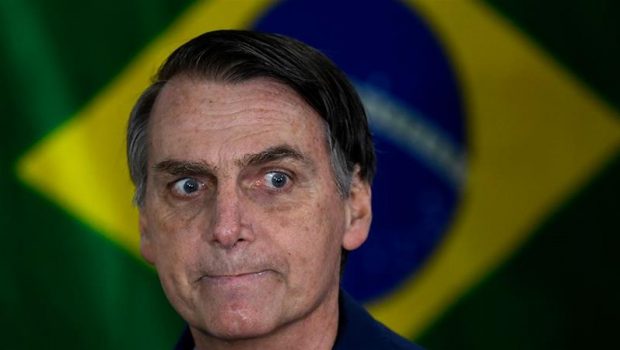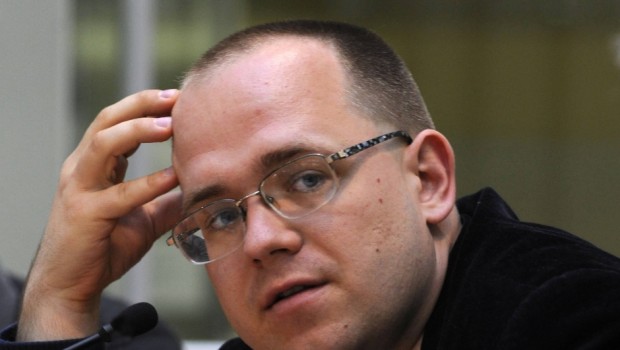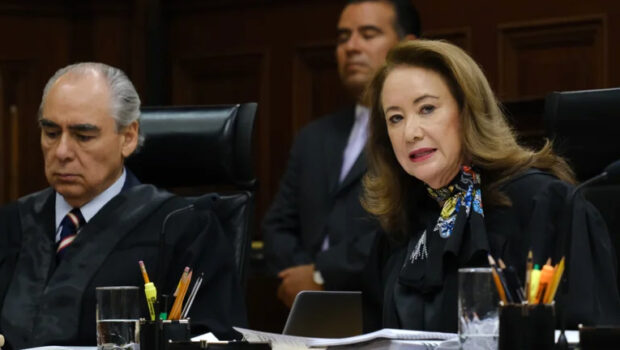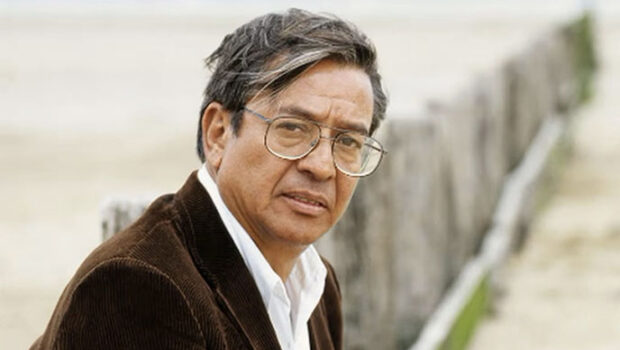Dilemmas of the Future American President
Dilemas del futuro presidente norteamericano
José Blanco
The fate of one of the most powerful nations in the history of humanity will be decided In the next elections. The juncture is marked by a deep crisis that crosses all strata of North American society, and on whose solution depends, not only of the luck of the country, but of course, the route that will be taken by other forces that determine the new global order today. The following article offers a timely reflection on various unavoidable aspects at this point.
The United States remains the greatest power on the planet but its relative weight in the world economy has been declining consistently. The planet is becoming multinational in economic terms but the military power of the U.S. remains undeniable. While no longer able to compete commercially with many countries in a myriad of products, it can still crush whomsoever in military terms.
The great economic and military power of the U.S. is inversely proportional to its social legitimacy in the eyes of most of humanity. On this front, the U.S. faces a multitude of dilemmas. The trends in the U.S. economy, although its weight has decreased in relative terms, continue to affect the planet. It is the largest debtor in the world and largely depends on the collective decisions of China, Japan and the European Union, plus the economies of India and Brazil are beginning to weigh in.
The dollar has stopped being the extra-strong currency that it was until the early Seventies. China is accumulating the largest monetary reserves in the world, with more than one trillion dollars. If all the developed countries were to bail out on a significant part of a currency that is in decline, everyone would come out losing, because the world economy would enter into a recession of unpredictable magnitude. So, among all of the aforementioned countries, they continue maintaining a U.S. economy that is damaging the entire world economy.
It is a knot that no one can undo at will. The “natural” evolution of the economy seems to drive it, at any rate, to a global crisis, from which will result another economy with a correlation of forces between the powers, distinct, but today, unpredictable. There will be, yes, a distinct international monetary system. This happened with the crisis of the monetary system known as the gold standard in the Twenties. It ceased to function and the world had international payment problems for nearly three decades, until the end of the Second World War when the United States emerged as the undisputed powerhouse. In 1945, its industrial production was higher than that of the rest of the world. For that reason, it could impose the dollar as the means of international payment. That only worked well until approximately 1970 but today still remains the primary means of payment amid a continuing instability.
The next president will have to reach an agreement with the rest of the powers to change the international financial system. But, in this agreement, the United States would necessarily fade into a secondary role. That is why this country hasn’t responded to the demands of the world to reform the international financial system. Will the next president do this, or will he leave things to run their uncertain course and its inevitable crisis?
In the Seventies, the first thing that globalized was precisely this international financial system. Banks of all countries can act in all countries. It was not like that until 1970. Before, there were national restrictions that permitted maintenance of a certain stable exchange rate in the world. After, many things globalized, industrial production, for example. A simple shirt, for example, could have a history behind it that involved the productive intervention of millions of workers in many countries. Communications went global and the consumerist ethos of the United States was exported even to China. The changes multiplied. India today trains more doctors in all specialties than Europe across-the-board. Bangalore, the Indian city for scientific research, is becoming more important than the Silicon Valley and many American researchers have moved from Silicon to Bangalore.
This globalized economy has led to the global warming of the planet. Since the Eighties, we’re living in a techno-scientific revolution that has produced more changes than all those that have occurred in previous history of mankind. The developed countries have created unimaginable wealth. But, this has been accompanied by the worst social inequality of all time, reproduced in multiple dimensions; not only the rich countries versus the poor ones, but within both the rich and the poor ones themselves, inequality has increased as never before. Today the United States has within itself an internal Third World.
The institutions that have been devoted to humanity, in order to organize it and coexist, have a high degree of obsolescence. This is happening with the UN and its dozens of agencies for every imaginable topic. It’s also occurring with the International Monetary Fund or with the World Bank, with the World Health Organization or the International Labor Organization. All the world problems ordinarily addressed by those organizations constitute very serious unresolved problems. The Security Council of the UN must maintain peace in the world, something that the world not known since time immemorial.
Habeas Corpus is a judicial institution that guarantees the civil right of the individual to avoid arbitrary arrest and detention. It’s based on the obligation to present all detainees before a judge within 24 hours. For his part, the judge could order immediate release if suffi cient grounds for arrest are not found. In the country of freedom—as the United States has seen itself—this fundamental institution has been virtually eliminated from the American Dream after 9-11. Civil rights have been suppressed to a great extent and today anyone can be stopped by a police authority without any arrest warrant.
The new president will face many other problems:
The United States has the worst health system in the developed world and also one of the most unbalanced and unjust tax systems, created to benefit the wealthiest.
The entire world is prey to the aftermath of 9-11, the threats of terrorism and nuclear weapons that are now available to underdeveloped countries like North Korea.
Poverty, genocide and disease devastate us all. The deep poverty of the Southern Hemisphere provokes massive migrations towards the Northern. This social movement of millions causes huge problems for the North and the South. All are affected but nobody has the solution.
All the developed countries have a much greater responsibility than the underdeveloped, who don’t have the resources to do hardly anything. AIDS, for example, is ravaging sub-Saharan Africa and gets a ridiculous amount of international aid compared to the size of the problem.
Without a doubt, the man with greater responsibilities in the eyes of the world is the president of the United States. Today there are sufficient resources, financial, technological, and of the media, to resolve world hunger and the ignorance of the millions of illiterates on the planet, if the planet were organized on other bases. This means a complete overhaul of international institutions and a commitment by the developed countries to rid the world of underdevelopment in half a century. It is absolutely possible. But we require a profound cultural change in the political classes of the developed world.
In 1983, the United States conducted a study of competitive academics in science and mathematics in elevenyear- old children in 21 countries. According to a report entitled A Nation at Risk, the United States turned out to be in 19th place. Since that report, it was decided to conduct an educational revolution, still going on, which resituated this country in the world of knowledge in just a few years (though they still have a widely-ignorant society), and re-launched a race for accelerated expansion of education in the developed world. Efforts such as that can be put into motion by a consortium of all developed countries for the entire planet. The decision of the president of the United States in this regard is crucial.
The cost of the Iraq war is 341.4 million dollars per day, and the total cumulative figure is close to five hunpor dred and thirty billion dollars. The gross national product of Iraq is 18.8 million dollars, i.e, meaning what the United States has thrown into the fire over Iraq equals 28 times the value of everything that is produced in Iraq one year. It amounts to almost twice the annual domestic product of all of sub-Saharan Africa. Obviously, with what the United States has spent in the war against Iraq, all of Africa could have been rescued from extreme poverty.
This world scenario leads to the resolution of some questions that the next U.S. term-holder will have to answer:
1. Are you willing to reform international institutions in a democratic mode and to respect international treaties?
2. Are you interested in reaching a global agreement to build a new arquitecture of the international financial system?
3. Do you agree to drastically reduce your military budget and allocate resources to reform your health-care system, for example?
4. Will your judicial system return to Habeas Corpus as the overriding principal?
5. Will you sponsor a balanced and fair tax reform for American society?
6. Will you seek a radical reform of the UN system and its agencies?
7. Will you launch a program—together with the rest of the developed countries—to pull the underdeveloped world out of its misery and put the brakes on mass migrations?
8. Will you launch a plan to educate the world’s societies side by side with the rest of the developed countries?
9. Will you seek to eradicate disease on the planet?
10. Will you launch a plan against global warming in coordination with all nations of the world?
All this can be answered in the affirmative if the world’s wealthy classes and political parties in developed countries come out in favor of a program to make the planet a humane world. And in this, the voice of the next U.S. president is decisive. Perhaps Obama, most likely, Obama, has the floor.
En las próximas elecciones se decidirá el destino de una de las naciones más poderosas en la historia de la humanidad. La coyuntura está marcada por una profunda crisis que atraviesa todos los órdenes de la sociedad norteamericana y de cuya solución depende no sólo la suerte de este país sino, desde luego, el rumbo que tomarán las otras fuerzas que hoy determinan el nuevo orden global. El siguiente artículo ofrece una reflexión puntual sobre varios aspectos insoslayables en este momento.
Estados Unidos sigue siendo la mayor potencia del planeta, pero su peso relativo en la economía-mundo ha venido disminuyendo consistentemente. El orbe se vuelve multipolar en términos económicos, aunque el poder militar del país aún es incontestable. No puede ya competir comercialmente con muchos países en una infinidad de productos, pero puede aplastar militarmente a cualquiera.
El gran poderío económico y militar de Estados Unidos es inversamente proporcional a su legitimidad social frente a la mayor parte de la humanidad. De este modo, enfrenta una multitud de dilemas. Las tendencias de la economía estadounidense, aunque su peso haya disminuido en términos relativos, siguen afectando al planeta. Es el mayor deudor del mundo y en gran medida depende de las decisiones colectivas de China, Japón, la Unión Europea, y empiezan a pesar en ello las economías de la India y de Brasil.
El dólar está dejando de ser la moneda extra fuerte que fuera hasta principios de los años setenta. China acumula las mayores reservas monetarias del mundo, con más de 1 billón (un millón de millones) de dólares. Si todos los países desarrollados se deshicieran de una parte significativa de una divisa que va en declive, todos saldrían perdiendo, porque la economía mundial entraría en una recesión de magnitud imprevisible. Por eso entre todos continúan sosteniendo a una economía que le hace daño a toda la economía del mundo.
Es un nudo que nadie puede deshacer voluntariamente. La evolución “natural” de la economía parece que la conducirá, de todos modos, a una crisis mundial, de la que saldrá otra economía con una correlación de fuerzas, entre las potencias, distinta, pero hoy imprevisible. Habrá, sí, un sistema monetario internacional distinto. Esto pasó con la crisis del sistema monetario llamado patrón oro en los años veinte; dejó de funcionar, y el mundo tuvo problemas de pagos internacionales durante casi tres décadas, hasta que al término de la segunda guerra mundial surgió Estados Unidos como potencia indiscutible: en 1945 su producción industrial era mayor que la del resto del mundo. Por esa razón pudieron imponer el dólar como el medio de pago internacional que sólo sirvió hasta 1970, aproximadamente, y hoy continúa siendo el principal medio de pago, aunque en medio de una inestabilidad continua.
El próximo presidente tendrá que llegar a un acuerdo con el resto de las potencias para cambiar el sistema financiero internacional; pero en este acuerdo los Estados Unidos pasarían, necesariamente, a un segundo plano. Por eso, este país no ha respondido a los reclamos del mundo encaminados a reformar el sistema financiero internacional. ¿Hará esto el próximo presidente, o dejará que las cosas sigan su curso incierto y su crisis inevitable?
En los años setenta, lo primero que se globalizó fue precisamente el sistema financiero internacional. Los bancos de todos los países pueden actuar en todos los países. No era así hasta 1970; había restricciones nacionales que permitían mantener cierta estabilidad cambiaria en el mundo. Después se globalizaron muchas cosas: la producción industrial, por ejemplo. Una simple camisa, digamos, puede tener detrás de sí una historia productiva que ha implicado la intervención de millones de trabajadores de muchos países. Se globalizaron las comunicaciones y, con ellas, la idiosincrasia consumista de los Estados Unidos (hasta en China). Los cambios se multiplicaron. La India hoy forma más doctores en todas las ramas del conocimiento que toda Europa junta. Bangalore, la ciudad india de la investigación científica, se está volviendo más importante que Sillicon Valley y muchos investigadores norteamericanos se han mudado de Sillicon a Bangalore.
Esta economía globalizada ha dado lugar al calentamiento global del planeta. Desde los años ochenta vivimos una revolución científico-tecnológica que ha producido más cambios que todos los ocurridos en la historia previa de la humanidad. Los países desarrollados han creado una riqueza inimaginable. Pero todo ello ha venido acompañado de la peor desigualdad social de todos los tiempos. La desigualdad se reproduce en múltiples dimensiones. Los países ricos frente a los pobres, aunque dentro de los países ricos y dentro de los pobres, la desigualdad se ha acentuado como nunca. Estados Unidos tiene dentro de sí, hoy, un tercer mundo.
Las instituciones que se ha dado la humanidad para organizarse y vivir y convivir, tienen un alto grado de obsolescencia. Ello ocurre con la ONU y sus decenas de agencias para todos los temas imaginables. Ocurre también con el Fondo Monetario Internacional o con el Banco Mundial; con la Organización Mundial de la Salud o con la Organización Internacional del Trabajo. Todos los problemas que en el mundo deben ser resueltos por esas organizaciones, constituyen gravísimos problemas sin resolver. El Consejo de Seguridad de la ONU debe mantener la paz en el mundo; una paz que éste no conoce desde tiempos inmemoriales.
El habeas corpus es una institución jurídica que garantiza la libertad personal del individuo, con el fin de evitar arrestos y detenciones arbitrarias. Se basa en la obligación de presentar ante el juez a todo detenido en el plazo de 24 horas. Por su parte, el juez puede ordenar la libertad inmediata si no encuentra motivo suficiente de arresto. En el país de la libertad —como se ha visto a sí mismo los Estados Unidos— esta institución fundamental ha sido prácticamente eliminada del American Dream después del 11-S. Las libertades han sido suprimidas en gran medida y hoy cualquier persona puede ser detenida por una autoridad policíaca sin necesidad de ninguna orden de arresto.
Otros muchos problemas enfrentará el nuevo presidente:
El peor sistema de salud del mundo desarrollado lo tiene Estados Unidos. Uno de los sistemas fiscales más desequilibrados e injustos, creado para favorecer a los más ricos, también es suyo.
El mundo es presa de las secuelas del 11-S; vive las amenazas comunes del terrorismo y de las armas nucleares que ahora están al alcance de países subdesarrollados como Corea del Norte.
La pobreza, el genocidio y la enfermedad, nos devastan como humanidad. La pobreza profunda del Sur provoca masivas migraciones hacia el Norte. Este movimiento social de millones suscita problemas ingentes para el Norte y para el Sur. Todos están inconformes, pero nadie tiene la solución.
Todos los países desarrollados tienen una responsabilidad mucho mayor que los subdesarrollados que no cuentan con recursos para hacer casi nada. El sida, por ejemplo, devasta al África Subsahariana, la que recibe una ayuda internacional ridícula frente al tamaño del problema.
Sin ninguna duda, el hombre con mayores responsabilidades frente al mundo es el presidente de los Estados Unidos. Hoy existen los recursos financieros, tecnológicos y de comunicación suficientes para resolver el hambre del mundo y la ignorancia de millones de iletrados del planeta, pero sólo si éste se organizara sobre otras bases. Ello quiere decir una renovación completa de las instituciones internacionales y un compromiso de los países desarrollados para sacar del subdesarrollo al mundo en medio siglo. Es absolutamente posible. Pero requerimos un cambio cultural profundo en las clases políticas del mundo desarrollado.
En 1983, Estados Unidos llevó a cabo un estudio de competencia académica en Ciencias y Matemáticas, en niños de 11 años de 21 países. De acuerdo con un informe titulado A Nation at Risk, Estados Unidos quedó en el lugar 19. A partir de ese informe, se tomó la decisión de llevar a cabo una revolución educativa, aún en marcha, que recolocó en pocos años al país en el mundo del saber (aunque tienen aún una sociedad ampliamente ignorante), y relanzó al mundo desarrollado a una carrera por la ampliación acelerada de la educación. Esfuerzos como ese pueden ser procesados por el conjunto de los países desarrollados en todo el planeta. La decisión del presidente de los Estados Unidos a este respecto es crucial.
El costo de la guerra de Irak es de 341.4 millones de dólares por día, y la cifra total acumulada se acerca a los quinientos treinta mil millones de dólares. El producto interno bruto de Irak es de 18,800 millones de dólares; es decir, lo que ha gastado en el fuego que le ha echado Estados Unidos encima a Irak equivale a 28 veces el valor de todo lo que produce el propio Irak en un año. Equivale también a casi el doble del producto interno anual de lo que produce toda el África Subsahariana. Es obvio que con lo que ha gastado Estados Unidos en la guerra contra Irak, África entera podría haber sido sacada de la pobreza extrema.
Este panorama mundial induce a la resolución de algunas preguntas que el próximo mandatario norteamericano deberá contestar:
1. ¿Está dispuesto a reformar las instituciones internacionales en clave democrática y a respetar los tratados internacionales?
2. ¿Está interesado en llegar a un acuerdo mundial para construir una nueva arquitectura del sistema financiero internacional?
3. ¿Está de acuerdo en disminuir drásticamente su presupuesto militar y destinar los recursos a la reforma de su sistema de salud, por ejemplo?
4. ¿Volverán a hacer del habeas corpus su institución judicial por excelencia?
5. ¿Hará una reforma fiscal equilibrada y justa para la sociedad norteamericana?
6. ¿Buscará una reforma radical del sistema de la ONU y sus agencias?
7. ¿Pondrá en marcha un programa —junto con el resto de los países desarrollados— para sacar al mundo subdesarrollado de su miseria y frenar así las migraciones masivas?
8. ¿Pondrá en marcha un plan de educación de las sociedades del mundo codo a codo con el resto de los países desarrollados?
9. ¿Buscará erradicar la enfermedad del planeta?
10. ¿Pondrá en marcha un plan contra el calentamiento global en coordinación con todas las naciones del orbe?
Todo ello puede ser respondido afirmativamente, si las clases pudientes del mundo y los partidos políticos de los países desarrollados se pronunciaran por un programa para hacer del planeta un mundo habitado por humanos. Y en ello la voz del próximo presidente de Estados Unidos es decisiva. Quizá Obama, muy probablemente Obama, tiene la palabra.


